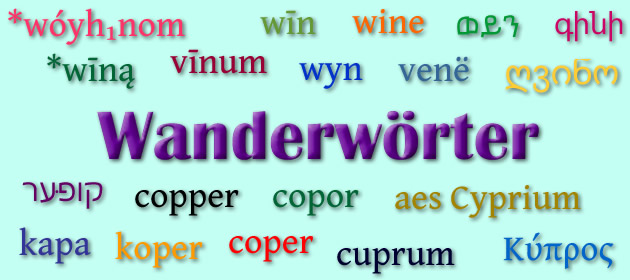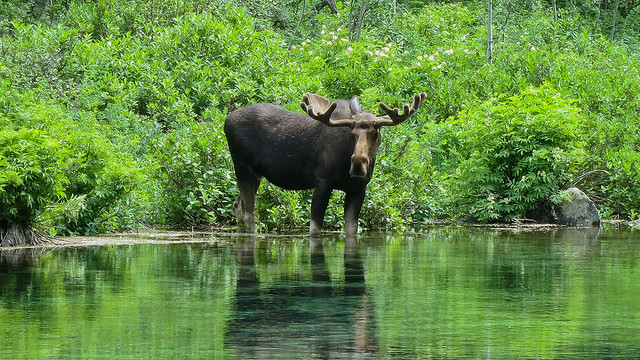A Wanderwort is term used in linguistics to refer to a word that has spread to many different languages, often via trade. It was borrowed from German and comes from wandern (to wander) and Wort (word), so it’s a “wandering word”. The plural is Wanderwörter, Wanderworte or Wanderworts [source]. The origins of some such words goes back to ancient trade routes from the Bronze Age, and it can be difficult to trace which language they ultimately came from. Examples include copper, silver, mint and wine [source].

Another example of a Wanderwort is:
tea, which comes from the Dutch thee (tea), from 茶 (tê – tea) in the Amoy dialect of Southern Min (Min Nan), from the Old Chinese *l’aː (bitter plant), from the Proto-Sino-Tibetan *s-la (leaf, tea) [source].
There are similar words for tea in many other languages, including ᑎᕀ (tiy) in Cree, tae in Irish, tī in Maori and టీ (ṭī) in Telugu. These words arrived in Europe and elsewhere thanks to the Dutch East India Company, who brought tea by sea from Amoy [source].
The word chai which in English is short for masala chai, refers to a beverage made with black teas, steamed milk and sweet spices, based loosely on Indian recipes. It comes from from the Hindi-Urdu चाय / چائے (cāy – tea), from the Persian چای (čây – tea), from the Chinese 茶 (chá – tea) [source].
Languages that got their tea overland generally have a word for tea like chai or cha, including цай / ᠴᠠᠢ (tsay – tea) in Mongolian, चाय (cāy – tea) in Hindi, чай (čaj – tea) in Russian, ชา (chaa – tea) in Thai, and ca (tea) in Malay [source].
